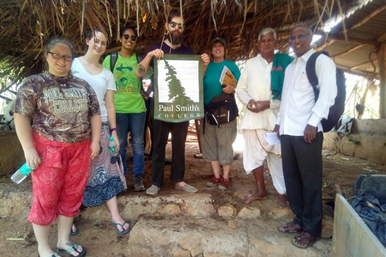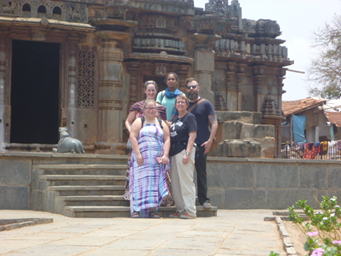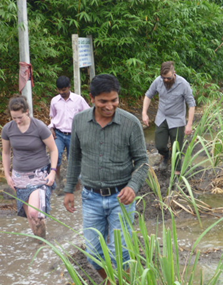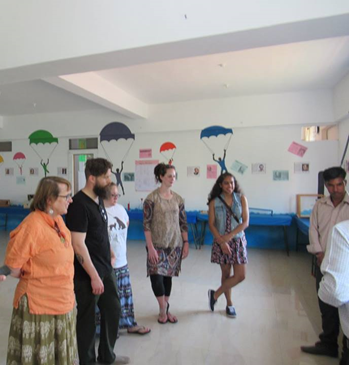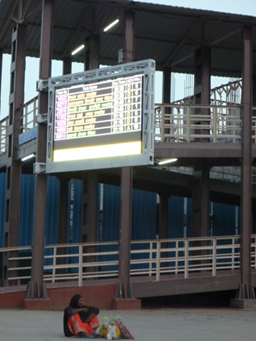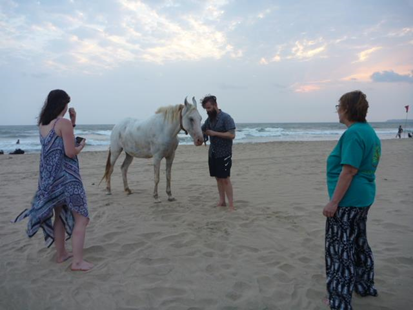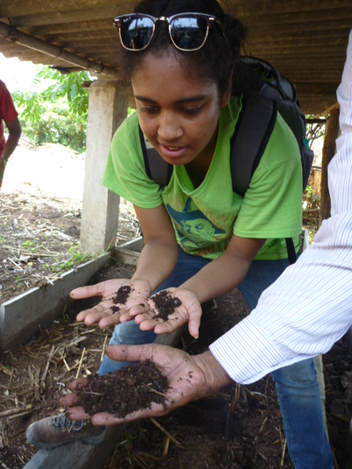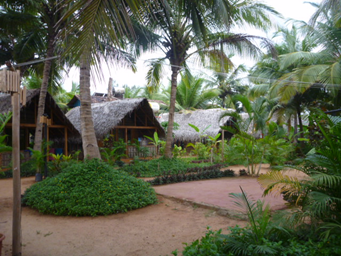By Deb Naybor
Professor
India has the fastest growing population in the world. It already has four times as many inhabitants in a country one third the size of the United States. Its emerging middle class is expected to reach 475 million people by the year 2030, 100 million people more than all Americans. The reality of this increase in consumers is intensified pressure on limited natural resources, increased pollution, and strained ecological and agricultural systems.
Learning all these facts in the classroom is helpful in understanding the global environmental issues that exist, but Paul Smith’s students got the opportunity to see these problems … and some amazing grassroots programs combating the cause and effect of environmental degradation first hand. In May 2017, Professor Deb Naybor traveled with students Amanda Aurichio, Haley Drury, Matthew Phillips and Jhanelle Rhahim to southern India to learn about environmental programs funded through the Deshpande Foundation.
Traveling from New York City to Bangalore by plane, then Bangalore to the city of Hubli by sleeper train was an adventure in itself. Moving our luggage and ourselves to the train became a parade of porters with bags on their heads. Note to self: limit the size and amount of luggage next trip.
Once settled in our hotel in Hubli, we met with members of the amazing staff at Deshpande Foundation India, a non-governmental organization founded in 1996 which teams with organizations and entrepreneurs throughout India to promote education and development. Our intrepid crew spent the next six days visiting over 20 projects, programs, and educational venues assisted by our hosts. From village maternity programs that provides education and care for mothers and babies (decreasing child mortality and therefore decreasing the number of children per family) to a science center that provides traveling labs to poor rural schools on math and science to visiting multiple farm programs, the long hot days were filled with moving from place to place, meeting new friends and learning new methods of combating environmental issues.
Highlights included visiting an educational center and multiple farms which focus on teaching permaculture methods of building sustainable agricultural ecosystems. The farmer shown below told us that he had not been able to earn enough on his farm to support his family so he migrated to the city to work as a construction laborer, earning $2 a day. Five years after switching to permaculture methods, he was able to support his family and employ two adult sons through growing of mangos and feed for his herd of dairy cows. We also met with a graduate of the Deshpande Fellowship program who had developed an ingeniously simple method of restoring a depleted aquifer around bored wells, saving farmers thousands of dollars spent drilling additional wells which often had no or low water yield.
The day that many of us will remember best however, was our trip to see engineered irrigation ponds funded with low interest loans from Deshpande Foundation. After a long dry spell, monsoon rains had finally come the day before our field trip, turning the clay soil into a thick black muck. In order to get to new and old, well designed and failed farm irrigation ponds, we had to trek through the thigh high mud, wade through streams, and finally give up our shoes to see these projects first hand. Our rather grand hotel looked on in horror when we arrived back, but we quickly rallied with a hose in the parking lot and a pile of towels to clean up before we tracked across the white marble lobby floor.
We also had an amazing visit to Kalkeri Sangeet Vidyalaya School, which provides free education for underprivileged village children in music and performing arts. Parents hesitate to allow their children to pursue careers in traditional dance, drama, song and music. The school, nestled in the mountains of the Dharwad district, has created an amazing sustainable campus with buildings made from local, renewable materials and state of art solar hot water and photovoltaic cells. The founder and headmaster informed us that he had been educated as a biologist and had tried to use permaculture methods on site but monkeys had raided the gardens, which made food production impossible. After trapping and removing the offenders, they had about six months of relative peace but the troops were forming again and farming was abandoned. The school has outgrown its current property and they are currently searching for a larger parcel of land which would allow them to expand their enrollment and sustainability plans. They requested a PSC intern to work on the design of the future campus, providing a unique opportunity to employ permaculture design from the ground up.
As with any amazing trip there are too many stories to relate in this small space. Visits to Hindu temples and a giant Buddhist monastery … touring the world’s largest kitchen which feeds 150,000 school kids per DAY … shopping for saris and bangles … trying new foods … visiting disabled kids at very special schools … spending our last few days on the Indian Ocean unwinding in the 105 degree heat … it was amazing, exhausting and exhilarating. Amanda, Haley, Jhanelle and Matt impressed everyone they met, made hundreds of new friends and showed this part of the world that Americans, especially PSC people, care.
If you want to know more, our team will be presenting on international education on November 9th.

